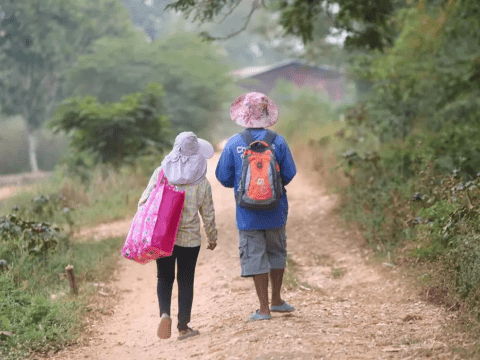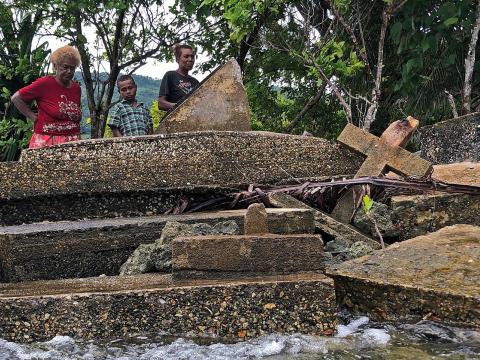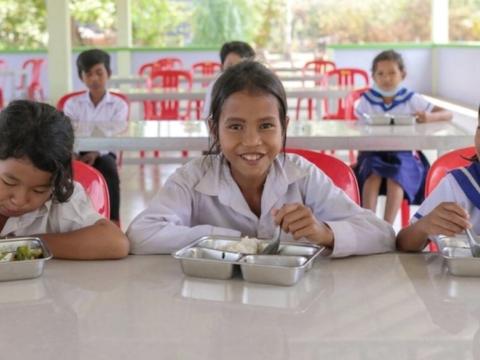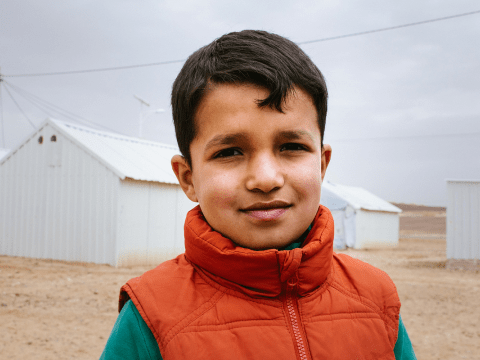
Redefining 'home': The importance of building community for migrants
For International Migrant Day Amy Louise Collins writes that every effort should be made to help migrants find a home away from home.
There are around 1 billion migrants globally, about 1 in 8 of the global population. International Migrants Day serves as a poignant reminder of the complex realities faced by these migrants as they move across the world in search of work, safety or better living conditions. So many of these people navigate a landscape of ever-shifting communities, leading to a profound sense of dislocation, which in turn leads to poor health, mental health and financial and social insecurity.
Redefining the meaning of "community" for migrants, ensuring that migrants feel at home, whether at their place of origin, during transit, or at their new destinations is vital to our programming approach, wherever World Vision works. We believe that thriving communities are built on a foundation of belonging and so we do all we possibly can to support individuals and families (especially children); those in transit, those adjusting to unfamiliar environments, and also those left behind.
Understanding the drivers of migration
In source communities, we engage with families to inform them about the benefits and challenges of migration. Sometimes people leave their homes because they are misinformed that life will be better elsewhere. Listening to the voices of children and communities also helps us better understand the drivers of migration and informs our approaches to supporting those impacted by this phenomenon. We ensure that children who remain behind receive support and resources, helping them to thrive despite the absence of a parent or guardian.
In Cambodia, for example, World Vision has implemented the Grandmother Approach with children who have been left behind with grandparents. By empowering grandmothers and strengthening the role of grandmother groups, we have found this contributes to increased understanding and social cohesion within families and communities, as well as improved family and community health and well-being.
Providing relief assistance to ensure survival
During the transit phase, World Vision provides crucial assistance to migrants facing numerous challenges. We support Migrant Resource Centers who provide a space for migrants to feel less alone, through the provision of comprehensive information, community education, and reintegration support and referral. Our programmes aim to meet basic needs, such as shelter, food, and healthcare. We recognise that the transit experience can be fraught with uncertainty and hardship, and our goal is to ensure that migrants are safe and supported throughout their journey.
Fostering inclusion and facilitating integration
Once migrants arrive at their new destination communities our focus shifts to fostering inclusion and providing essential resources for adaptation. We advocate for the integration of young migrant children into local schools, ensuring they receive quality education regardless of their background. Additionally, we promote equitable access to healthcare and other vital services for migrant families, seeking to eliminate barriers that may hinder their full participation in society. We also strive to create pathways for migrants to contribute positively to their new communities, so they are not seen as a drain on national resources, but rather a welcome addition to the local economy.
World Vision sits at the intersection of source, transit, and destination communities, creating opportunities for migrants to build lasting connections and strong networks. By working collaboratively with local stakeholders, we aim to promote understanding and acceptance of diverse cultures, thereby helping to foster a sense of belonging for all migrants.
Researching the drivers and impacts of migration
Evidence informs and improves all our programming. A recent World Vision report titled Climate Change, Vulnerability, and Migration examines the impacts of labour migration on children within the context of climate change in Southeast Asia. It offers valuable insights into the drivers of migration, as well as the needs and aspirations of young people navigating these challenges. The findings reveal the urgency of supporting vulnerable migrants and provide recommendations for the international community, including donors, development partners, UN agencies, NGOs, and researchers.
World Vision and all our those who work to improve the lives of migrants can work to ensure that every migrant, no matter where they come from, or where they are going, feels a sense of belonging and connection, that they feel "at home" because they are included, valued, and supported.
To learn more about World Vision's work to support migrants and those left behind visit here
Amy Louise Collins is Regional Child Protection and Safeguarding Advisor, Child Protection & Participation for World Vision East Asia Region.


